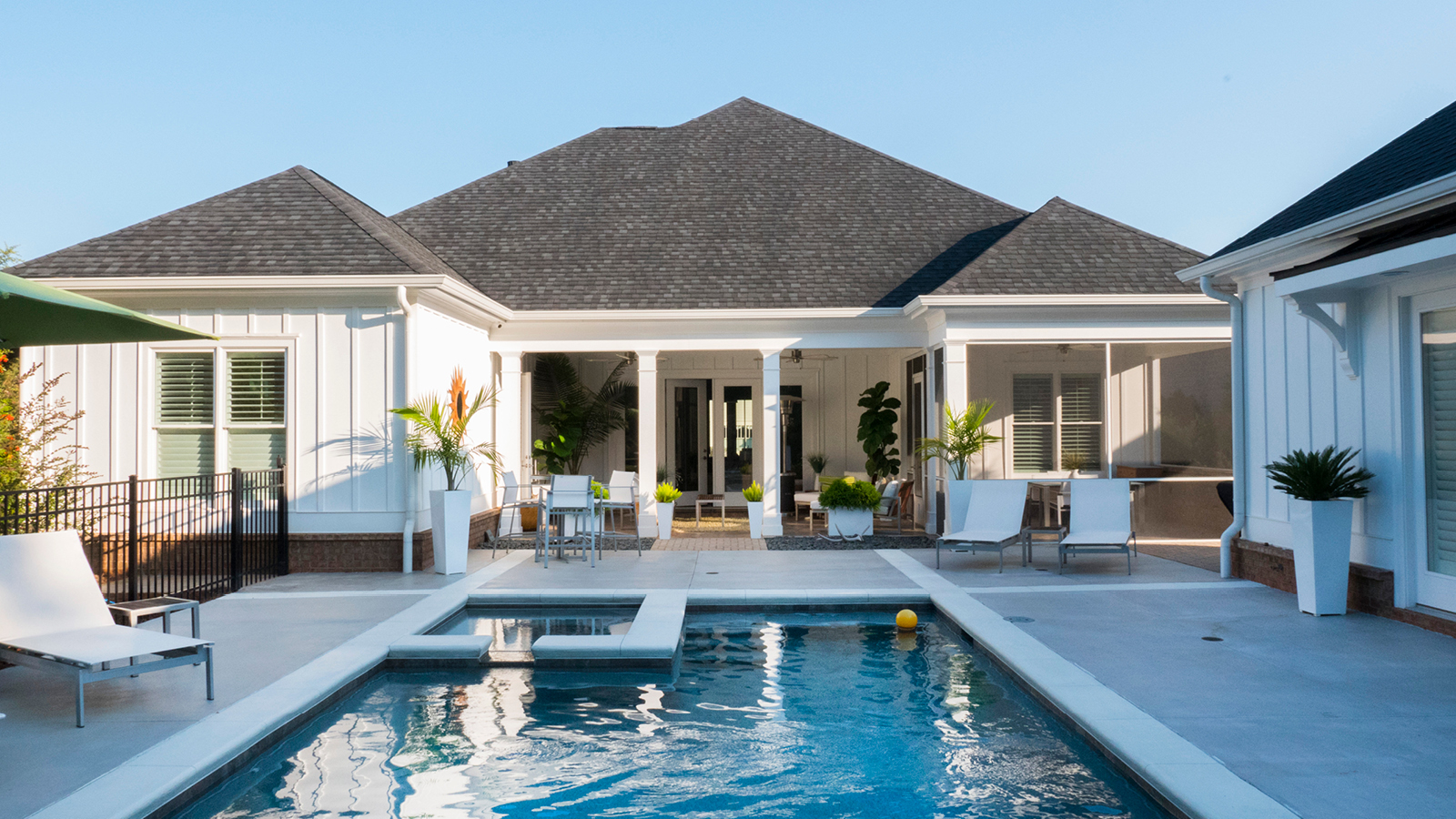Adding a backyard pool can be a popular home improvement project. Many homeowners dream of relaxing by the water, hosting a poolside gathering, and sitting by the pool on a warm sunny day. A pool can also add 5% to 8% value to a home.1
Having a detailed plan can help ensure a pool installation goes smoothly. Here’s a handy checklist to share with homeowners ready to take the plunge:
Required permits: Permits related to excavation, site planning, construction, and zoning2 are required to install a pool in most states. Specific rules can vary from one municipality to another. An experienced pool contractor can help ensure you obtain all necessary permits before construction begins.
Material: The most common pool materials are vinyl, concrete, and fiberglass. Vinyl pools tend to be the most affordable and the fastest to install, but their liners typically need to be replaced every six to 10 years.3 Concrete and fiberglass pools offer greater durability and a longer lifespan of over 20 years.
Design options: An above-ground pool may cost less to install than an inground pool, but an inground pool is typically more aesthetically appealing. Inground pools can also be customized to fit a specific backyard landscape or use, such as for swimming laps. Concrete pools offer maximum customization compared to fiberglass pools, which are pre-made in a limited choice of shapes and sizes.
Sustainability: A pool contractor can help you select the right equipment to reduce your pool’s energy consumption. For example, new variable-speed pool pumps use significantly less energy than traditional pumps. Installing the right plumbing can ensure pool water is moved as efficiently as possible. Plus, solar panels can help heat pool water at a fraction of the cost of electricity.
Fresh or saltwater: Saltwater pools are becoming increasingly popular. Instead of the traditional chlorine granules or tablets, they use salt generators to sanitize the water. While saltwater pools typically cost an extra $1,500 to $2,500 to install,4 they can provide a gentler, chlorine-free swimming experience.
Required fencing: Installing a pool fence enclosure is essential to help protect young children from accidental drowning. While there are no federal pool fencing laws, many states have developed their own regulations. To help homeowners consider various options, including the type of fencing to install, the U.S. Consumer Product Safety Commission has created Safety Barrier Guidelines for Residential Pools.
Ongoing maintenance: It’s important to consider ongoing pool maintenance, including opening/closing, cleaning, and chemical treatments. A good contractor can provide you with the necessary tools to keep your pool in good condition as well as offer ongoing maintenance and support.
For many homeowners, the benefits of installing a pool are priceless. It can enhance their lifestyle and home enjoyment by promoting health, fitness, and relaxation.
To learn more about how Aqua’s competitive consumer financing can help your customer’s pool dreams come true, contact us today at:
877-717-9494
[email protected]
